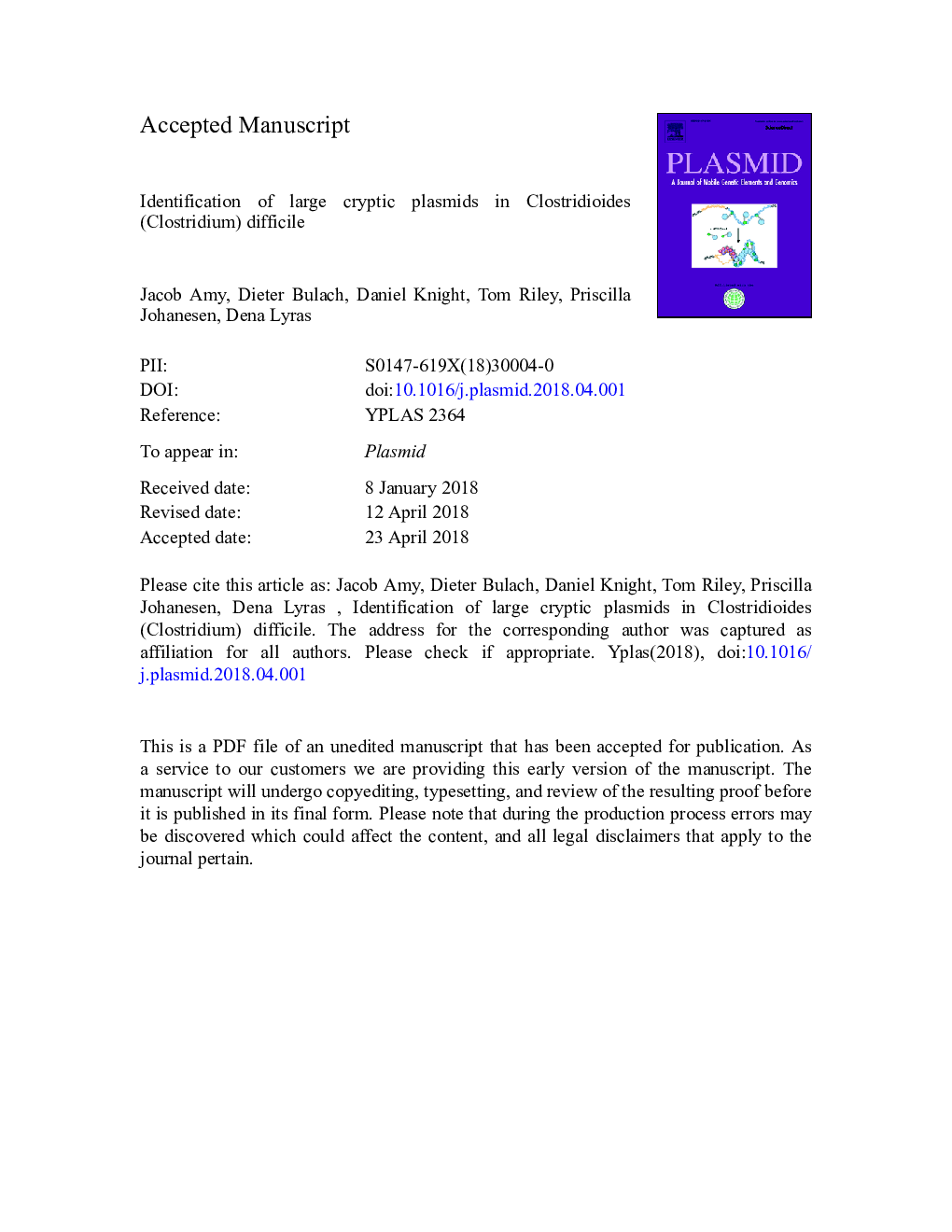| Article ID | Journal | Published Year | Pages | File Type |
|---|---|---|---|---|
| 8647778 | Plasmid | 2018 | 58 Pages |
Abstract
Clostridioides (Clostridium) difficile is a major bacterial pathogen of both humans and animals. Several species of pathogenic clostridia are known to harbour large plasmids with combinations of virulence, antibiotic resistance and metabolism determinants. Small cryptic plasmids have been previously identified in C. difficile, but there is a lack of recent work examining the prevalence and heterogeneity of plasmids in this diverse bacterial species. A survey of clinical and historical isolates of C. difficile showed that several strains carry large plasmids. Following whole-genome sequencing of these diverse strains, 42-47â¯kb plasmids with high nucleotide identity were found to be carried in 4.9% (nâ¯=â¯451) of isolates, with no firm connection to the strain backgrounds. These plasmids appear to have arisen as a result of recombination with a bacteriophage, but contain key plasmid features, such as a putative plasmid replication and partitioning locus. As no virulence factors or antibiotic resistance determinants were identified, further work is required to identify the selective advantage that must exist for the host isolates to maintain these large plasmids.
Related Topics
Life Sciences
Biochemistry, Genetics and Molecular Biology
Genetics
Authors
Jacob Amy, Dieter Bulach, Daniel Knight, Tom Riley, Priscilla Johanesen, Dena Lyras,
